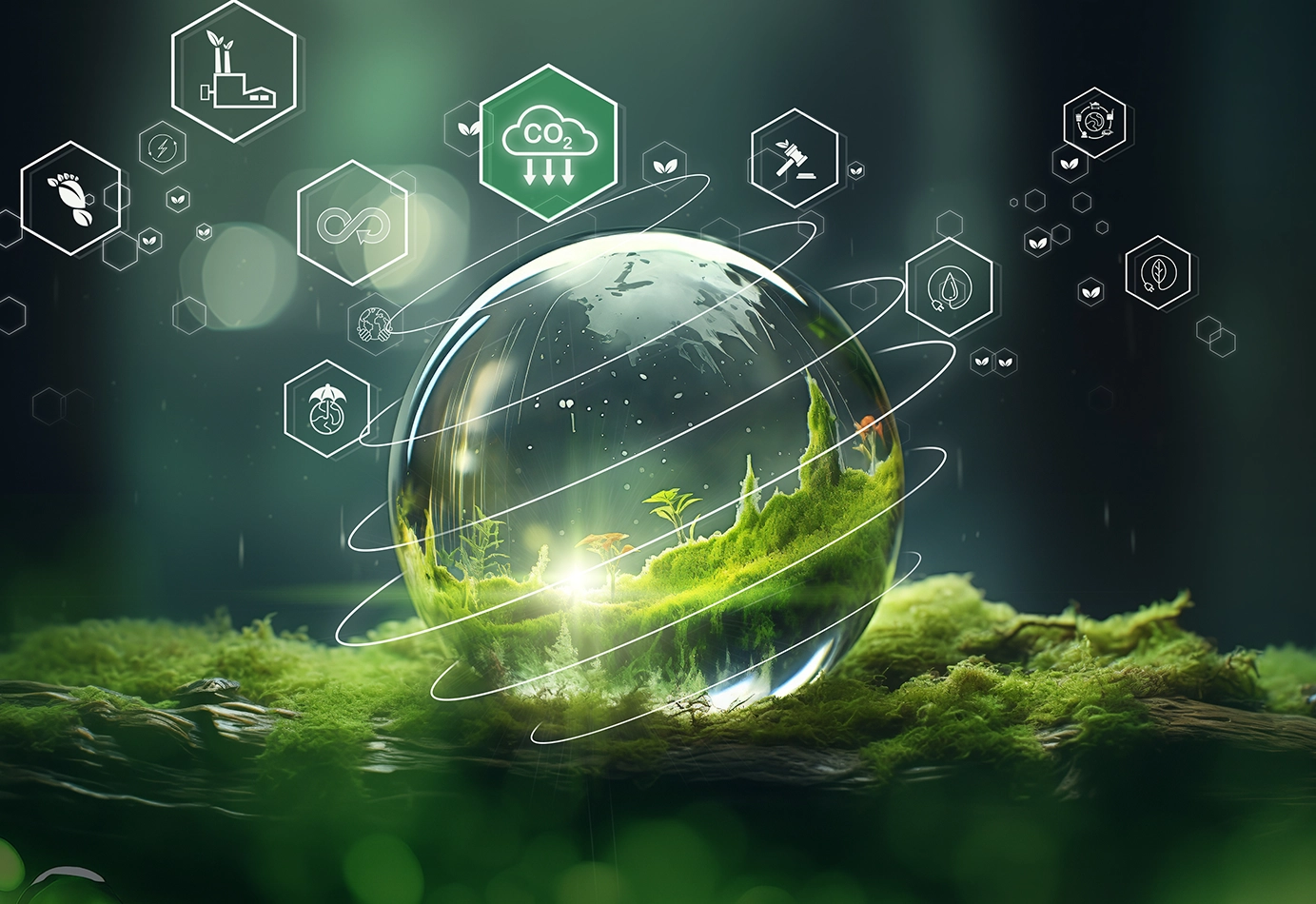The 3W Idea is a vision of the future that provides answers to the challenges humanity faces in the 21st century: limited access to drinking water and food, energy transformation, as well as military and economic security. In this vision, society benefits from responsibly managed water resources, clean hydrogen technologies, and innovative carbon materials.
Why those 3 resources: water, hydrogen and carbon are so important?
Water is one of the most vital resources of our planet. It covers as much as 70% of the Earth’s surface, bur only a small percentage, only 1%, is suitable for direct human use. Due to climate change, it is becoming less accessible in many places, which is why it is important to manage its resources efficiently. Water technologies and solutions in the fields of innovative retention, desalination and treatment methods will allow us to face these challenges best equipped.
Hydrogen is the fuel of the future. Hydrogen technologies are rapidly evolving towards production of clean hydrogen from renewable energy sources. In effect, hydrogen will become a clean and easily accessible means of energy storage. Technologies for producing, transporing and storing hydrogen will facilitate transitioning away from fossil fuels and reduction the carbon footprint of the entire economy.
Carbon is the material of the future and an element of life – all organic chemical compounds contain it. Thanks to its unique properties, carbon enables scientists to design lighter and more durable engineering materials. Graphene, fullerenes, carbon nanotubes and active carbon are used in construction, medicine, pharmacology and the space industry, among others.
Innovative solutions created by Polish scientists are an inspiration for the development of new businesses. Conversely, businesses in need of new technologies seek support in science. The integration of all entities into a single cohesive organizational and communication ecosystem offers immense opportunities to prepare Poland for the upcoming era of transformation towards sustainable development and zero emissions. But we also see that 3W technologies have great potential to develop in the 3SI region as well.
Growing 3W Technology Market
A thorough analysis commissioned by BGK from EY shows that the value of the 3W sector is currently USD 4.86 billion in Poland, USD 66.49 billion in Europe, and USD 236.6 billion worldwide. It is estimated that in Poland by 2030, the biggest growth will be seen in the carbon technology sector – an increase of nearly 9%, and the entire 3W market will grow to USD 5.6 billion. This shows how prospective and developmental this area is.
According to the report, the greatest impact of synergy of those three resources can be seen in industries such as healthcare, housing, as well as infrastructure, transport, and logistics. 3W will also impact social and territorial cohesion.
3W Potential in the Three Seas Region
The fundamental goal of cooperation among the Central European countries in the 3SI is the development of modern infrastructural solutions. However, the process of transformation towards zero emissions requires multi-faceted dialogue. BGK is convinced that 3W technologies are capable of unleashing transnational economic potential. Poland, as a region, has everything needed to build the necessary ecosystem for knowledge exchange and build competitive advantages based on water, hydrogen, and elemental carbon technologies, and the Three Seas region is also becoming more open to new partners.
Recent years of cooperation among the members of the 3SI have brought many tangible changes. However, the member states still face many challenges, such as the risk of a deficit in drinking water. Water management projects in the broadly understood industry have not yet appeared in cross-sectional documents concerning the Three Seas in terms of both utilization and conservation, i.e., adapting the economy to closed-loop technologies.
The renewable freshwater resources per capita in Poland are less than 1.6 thousand cubic meters, indicating a threat of water stress. Slovakia utilizes 63% of its hydrological potential, Romania 40%, Bulgaria 31%, while Poland only 19%, and Lithuania 18%.
Investments in retention, drought risk management plans or drinking water treatment stations are not only a matter of responsibility but a necessity. This creates opportunities for many investments in research and development, as well as the possibility of regional export and import of water technologies.
For the 3SI countries, hydrogen technologies are increasingly important. Hydrogen is one of the elements of energy security policy, as well as an opportunity to implement climate policy, decarbonization, or increase energy supply security. Particularly now, hydrogen is gaining importance in the changing geopolitical conditions of the region. Hydrogen as an energy carrier can also accelerate the development of renewable energy sources and improve energy efficiency.
3W Projects in the Three Seas Region
In the context of energy security, the 3SI countries are focusing on developing hydrogen technologies, improving energy efficiency, and diversifying energy sources.
An example of the implementation of the 3SI countries’ policy in relation to hydrogen technologies are the first projects carried out internationally or in cooperation with external actors, such as: Projects Launching a Hungarian-American Pilot Project in Hungary. The project involves studying the use of hydrogen in Hungary in collaboration with the new hydrogen technology sector from the United States.
Another example of the development of hydrogen technologies in the 3SI area is the agreement between Romanian Transgaz and the 3SI Investment Fund for the development of gas transmission infrastructure with the integration of hydrogen transport. The project is valued at PLN 2.7 billion.
The Danube-Oder-Elbe Water Corridor project, which aims to connect Poland, the Czech Republic, and Slovakia through a 450-kilometer canal, is awaiting implementation. This would create a network of water transport routes and consequently enable waterway connections for seaports throughout the region. The investment was planned to be financed from the funds of the 3SI Investment Fund.
The 3W Idea could significantly accelerate numerous works and projects related to the use of modern forms of carbon. Poland has tremendous potential in terms of innovation and could become one of the leaders in the development of nanocarbon technologies. Considering the 3SI region, the highest number of scientific publications is in Poland.
Examples of technologies ready for implementation include solutions developed by Smart Nanotechnologies, which can be used in electric vehicles. In Bulgaria, carbon absorption technologies in soil have been successfully implemented in the cultivation of cereals and industrial crops. In Estonia, the start-up UP Catalyst is working on a method of producing sustainable carbon nanomaterials and graphite from CO2.
Join the World of 3W
Innovations under the 3W banner have the potential to become a ‘game changer’ not only for the Polish economy but also to unleash the potential that lies in technologies throughout the entire 3SI region. Over 200 companies and institutions have already joined the 3W initiative, implementing and developing technologies related to water, hydrogen, and modern carbon technologies.
Read more about the 3W Idea: www.idea3w.org/en
You might be interested in
In Central Europe, the acceptance of traditional EU policies is high. The situation is already different in Western European countries. These two trends will determine the future of the EU.
Read MoreThere are 35 million digital nomads globally. Three Seas Initiative countries are fighting hard to gain a significant share of this community.
Read MoreIn order to develop, Central Europe needs nothing more than innovation. Countries of the region are more and more aware of that.
Read More




